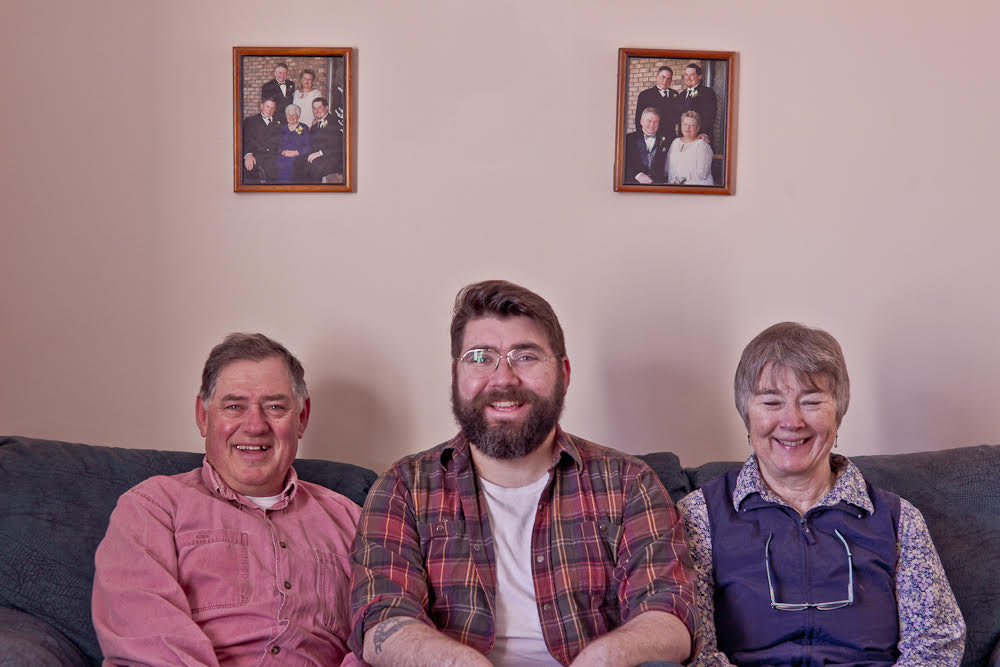Prepared Pianos: An interview with Judy Borer
by Simon Borer
Simon Borer is a musician, songwriter, poet and performer originally from RR #2 Renfrew, ON. He currently resides in Toronto, plays with his band Entire Cities, and performs stand-up comedy exclusively for his wife. For this edition of Smell of Our Own, Simon agreed to interview his mom, who is also a musician.

Coming from a pedagogical background, as well as being steeped in folk traditions, worship music, and classical discipline, my mother has found herself in a wide variety of musical endeavours, as a teacher, church organist and choir director, and accompanist.
But I’ve known for a long time that her relationship with music is as fraught as it is rich. I talked to her about rebellion, inheritance, discipline, and passage.
Judy Borer: [My mother] had a need to protect classical music as an art form, and in doing that I think she missed out on a lot of other genres of music.
Classical music, while I loved it, didn’t seem to suit my personality. The discipline, the competitive aspect wasn’t something I could resonate with. That meant I had to learn instruments other than the piano. So I taught myself guitar first of all. Somebody gave me a mandolin. The only way I could do it was if it was this self-imposed discipline. If there were other people judging or dictating…
SB: I’ve heard you talk a lot about your piano teacher. Did you push back against her?
JB: That was when I was quite young, 13. My mom had been my teacher up until that point but she didn’t want to anymore because I wasn’t disciplined but I was still really interested and one of the people I met was going to this woman and she only had one student. But I went and played for her and she accepted me. She was very avant-garde; her compositions, making prepared pianos. She loved all that. It had to do with her sense of humour. I think contemporary classical music has the most latitude for imagination and particularly humour. I think it’s a great way of expressing the bizarre, and she was very good at capturing those sounds particularly on the piano that have so much… depth and verve. She could’ve been a concert pianist. She wanted to be but she was an English teacher due to parental influences I guess. She got me into a program at the conservatory… I just wanted to take a year off.
After high school I was still just 16 but she put me in this scholarship program at the conservatory.
SB: Your mom quit being your music teacher when you were 13. When I was 13 you said ‘do you want to keep doing this?’ Were you consciously thinking to when you were 13?
JB: I think I understood that that was a question that needed to be asked in a compassionate fashion.
SB: When did you start teaching music?
JB: When I was 15 and then I wanted to leave that whole world behind when we moved here but, you know the way things go, you get, I won’t say sucked in… The same thing with going to church, I objected with many things to do with church but circumstances really came together to bring me back to that in a musical way. Well I went to church and then all of a sudden I was the organist.
SB: If you have a skill in the Ottawa Valley it will get used.
JB: When you’re in a big pond and you have some talent, it’s washed away. It’s not even considered worthy. And so it’s nice to be in a place that appreciates whatever you got. I was totally willing to cut off ties with all of that because there was a lot of baggage. The world does not allow you just to set things aside while they’re still in conflict. You have to deal with them.
That’s something I really love doing, is teaching.
SB: You said it was easy to get me involved at the beginning. You said it wasn’t always easy later. But you decided that that was something I should practice.
JB: I think I wanted you to be able to read music. It was a language.It was my language. So I think it was just that… I was passing on my language to you.
And hopefully you would get a little out of it.
